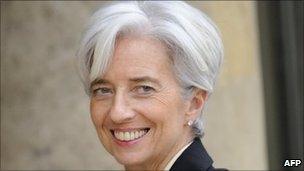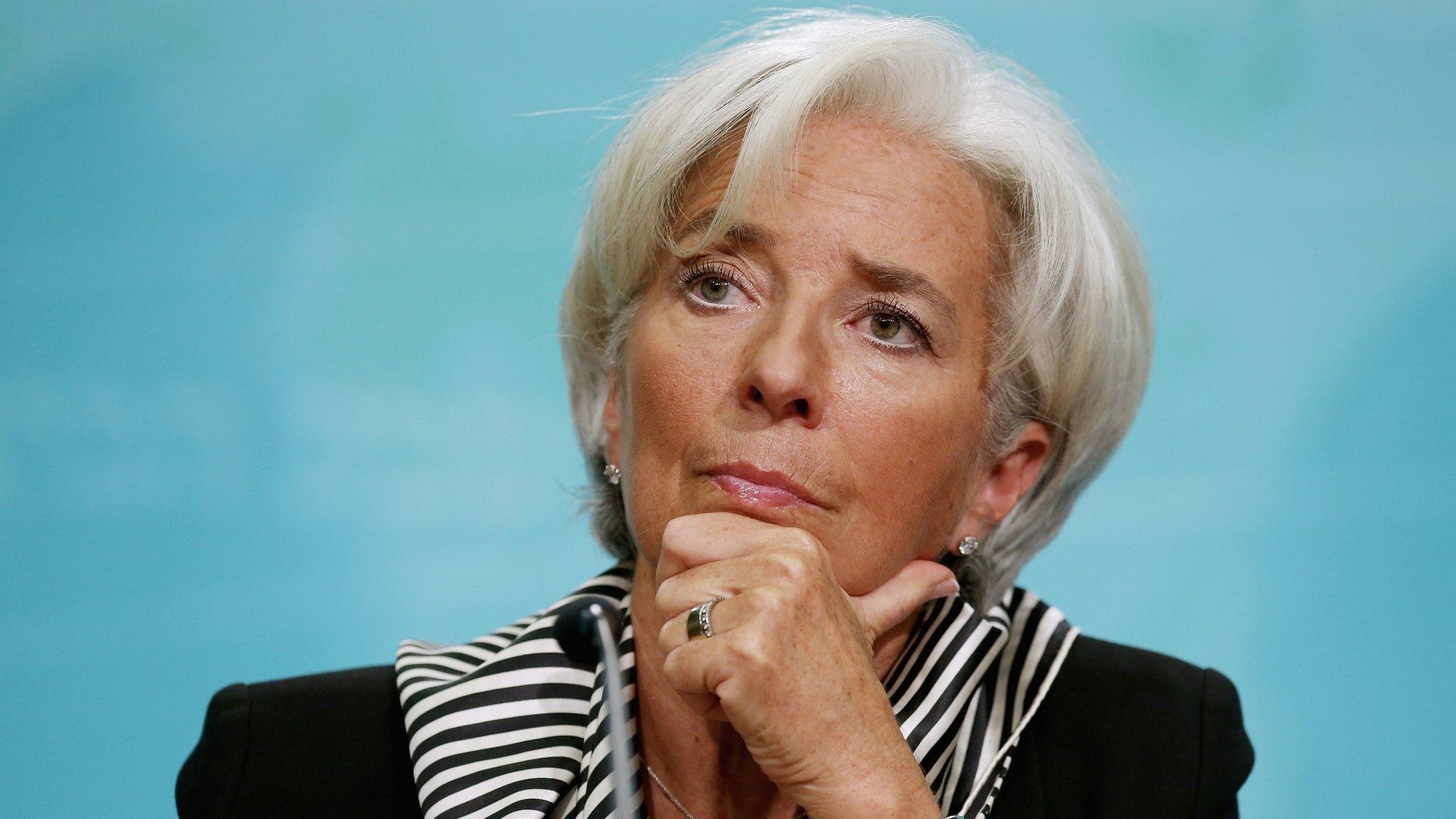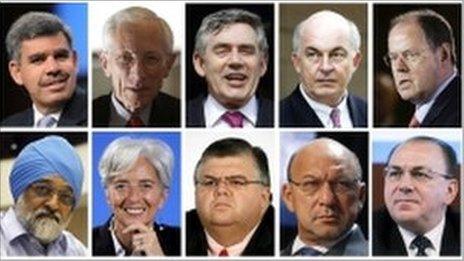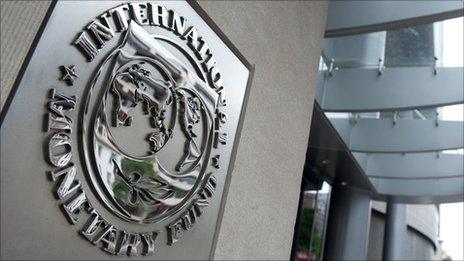George Osborne backs Christine Lagarde to lead IMF
- Published

If given the job, Christine Lagarde would become the IMF's first female leader
Chancellor George Osborne is to formally nominate Christine Lagarde for the post of managing director of the International Monetary Fund (IMF).
He said the French economy minister was "the outstanding candidate".
The position became vacant after Dominique Strauss-Kahn resigned so he could fight sexual assault charges.
PM David Cameron had suggested the IMF should look beyond Europe for its next chief after appearing to rule out his predecessor Gordon Brown for the job.
The IMF is described by many as the world's "lender of last resort" for countries facing bankruptcy.
First woman
In a statement Mr Osborne said Ms Lagarde had "shown real international leadership as chair of the G20 finance ministers this year".
"She has also been a strong advocate for countries tackling high budget deficits and living within their means," he said.
"We support her because she's the best person for the job, but I also personally think it would be a very good thing to see the first female managing director of the IMF in its 60-year history."
Treasury sources told the BBC's business correspondent Joe Lynam that they were confident she would also get the backing of the Chinese and US governments.
She has already won praise for her credentials from the interim head of the IMF, John Lipsky, the Italian government, the Swedish finance minister and Jean-Claude Juncker, who chairs the eurozone committee of finance ministers.
Germany's Finance Minister Wolfgang Schaeuble told the German weekly Bild am Sonntag that "Europe would have the best chance to secure the post again with Christine Lagarde, if she decides to run".
Other contenders include former German finance minister Peer Steinbrueck; Axel Weber, the former head of the German central bank, the Bundesbank; and Trevor Manuel, former South Africa finance minister.
Even before Mr Strauss-Kahn's resignation there had been much speculation that Mr Brown could take on the job, which the Frenchman was expected to vacate anyway in order to run for his country's presidency.
The former PM's aides have reportedly been campaigning on his behalf, but in an interview with the BBC last month, Mr Cameron appeared to block his ambitions.
He said: "I haven't spent a huge amount of time thinking about this. But it does seem to me that, if you have someone who didn't think we had a debt problem in the UK, when we self-evidently do, they might not be the best person to work out whether other countries around the world have a debt and deficit problem".
The UK and other major economies have an effective veto on the appointment.
During a visit to South Africa on Friday to promote international development, Mr Brown told the BBC he was not there to "pitch for a job" at the IMF.
The former Labour cabinet minister Tessa Jowell said developing countries would be happy to see Mr Brown appointed as head of the IMF.
"Gordon has appealed directly to those countries - particularly developing countries - who were beneficiaries of his vision and Labour's investment in aid and development," she told Sky News's Murnaghan programme.
"If you want the IMF to be more than the rich countries' institution, then Gordon Brown has an incredibly important contribution to make."
French connection
Foreign Secretary William Hague told the BBC's Politics Show on Sunday: "I can certainly tell you we have never received any public or private communication in the government from Gordon Brown seeking to be a candidate for this position.
"But in any case we regard Christine Lagarde as an outstanding candidate - as the outstanding candidate in the field."
Traditionally the head of the IMF comes from Europe, with America providing the boss of its sister organisation - the World Bank.
With the recent emergence of Brazil, Russia, India and China, many global figures - including the head of the Organization for Economic Co-operation and Development - had called for the IMF job to go to a non-European.
Mr Cameron had appeared to support that suggestion, telling the BBC the IMF could look to "another part of the world" for its next leader.
"If you think about the general principle, you've got the rise of India and China and South Asia, a shift in the world's focus, and it may well be the time for the IMF to start thinking about that shift in focus," he said.
Mr Strauss-Kahn was the fourth Frenchman to have held the IMF's top job. He is currently in New York on bail awaiting trial for sexual assault and attempted rape - charges he denies.
- Published19 December 2016

- Published20 May 2011

- Published10 June 2011
